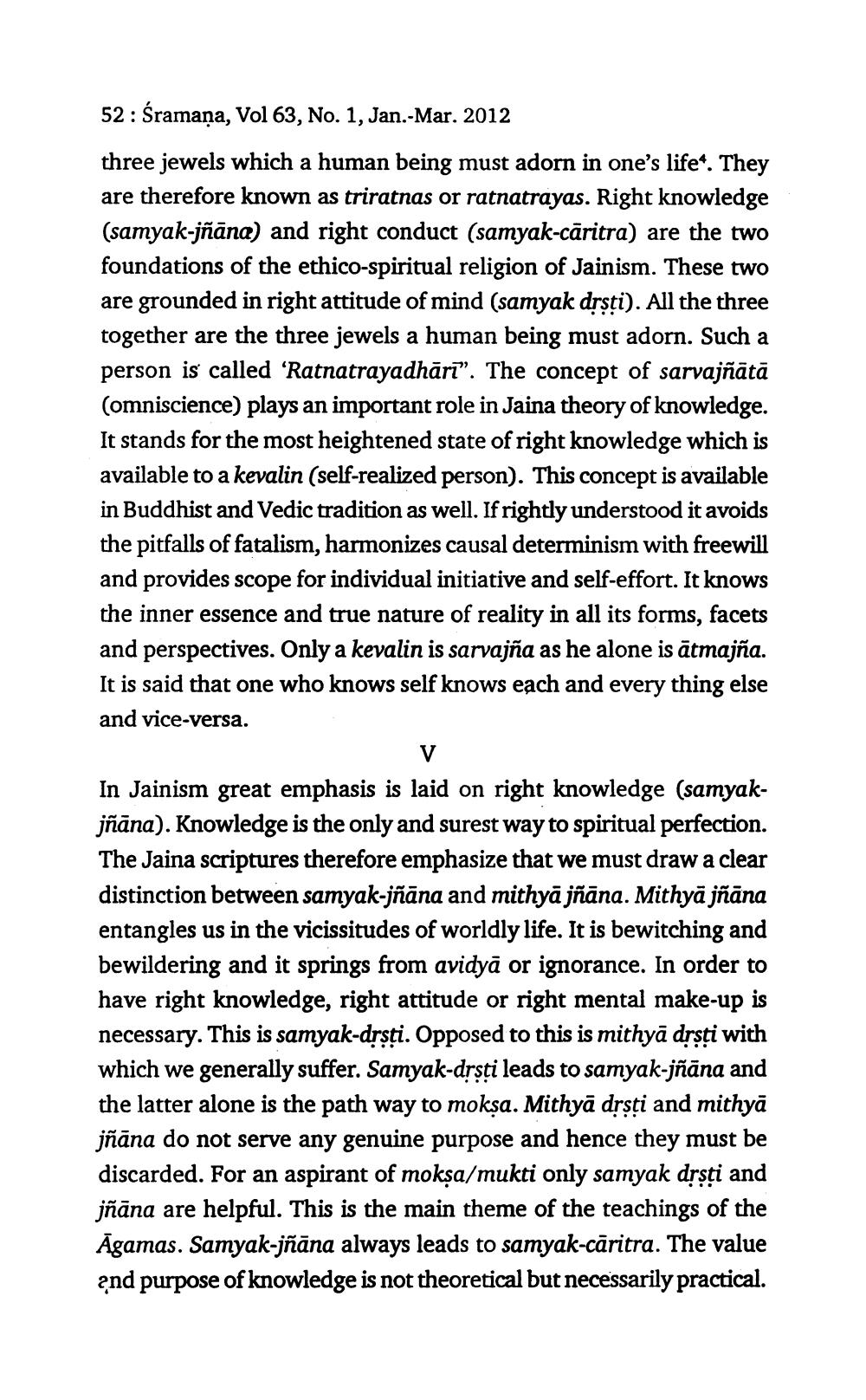________________
52: Śramaņa, Vol 63, No. 1, Jan.-Mar. 2012
three jewels which a human being must adorn in one's life*. They are therefore known as triratnas or ratnatrayas. Right knowledge (samyak-jñāna) and right conduct (samyak-cāritra) are the two foundations of the ethico-spiritual religion of Jainism. These two are grounded in right attitude of mind (samyak drsti). All the three together are the three jewels a human being must adorn. Such a person is called 'Ratnatrayadhārī". The concept of sarvajñātā (omniscience) plays an important role in Jaina theory of knowledge. It stands for the most heightened state of right knowledge which is available to a kevalin (self-realized person). This concept is available in Buddhist and Vedic tradition as well. If rightly understood it avoids the pitfalls of fatalism, harmonizes causal determinism with freewill and provides scope for individual initiative and self-effort. It knows the inner essence and true nature of reality in all its forms, facets and perspectives. Only a kevalin is sarvajña as he alone is ātmajña. It is said that one who knows self knows each and every thing else and vice-versa.
V
In Jainism great emphasis is laid on right knowledge (samyakjñāna). Knowledge is the only and surest way to spiritual perfection. The Jaina scriptures therefore emphasize that we must draw a clear distinction between samyak-jñāna and mithyā jñāna. Mithyā jñāna entangles us in the vicissitudes of worldly life. It is bewitching and bewildering and it springs from avidyā or ignorance. In order to have right knowledge, right attitude or right mental make-up is necessary. This is samyak-dṛṣṭi. Opposed to this is mithya drsti with which we generally suffer. Samyak-dṛṣṭi leads to samyak-jñāna and the latter alone is the path way to mokṣa. Mithya dṛṣṭi and mithyā jñāna do not serve any genuine purpose and hence they must be discarded. For an aspirant of mokṣa/mukti only samyak dṛṣṭi and jñāna are helpful. This is the main theme of the teachings of the Āgamas. Samyak-jñāna always leads to samyak-cāritra. The value and purpose of knowledge is not theoretical but necessarily practical.




